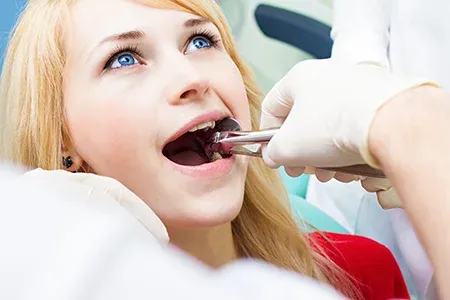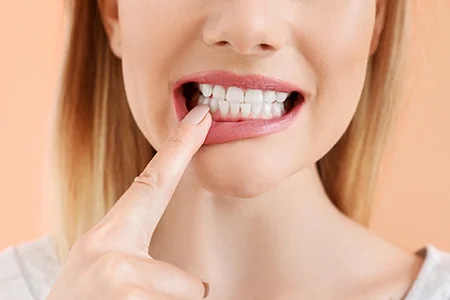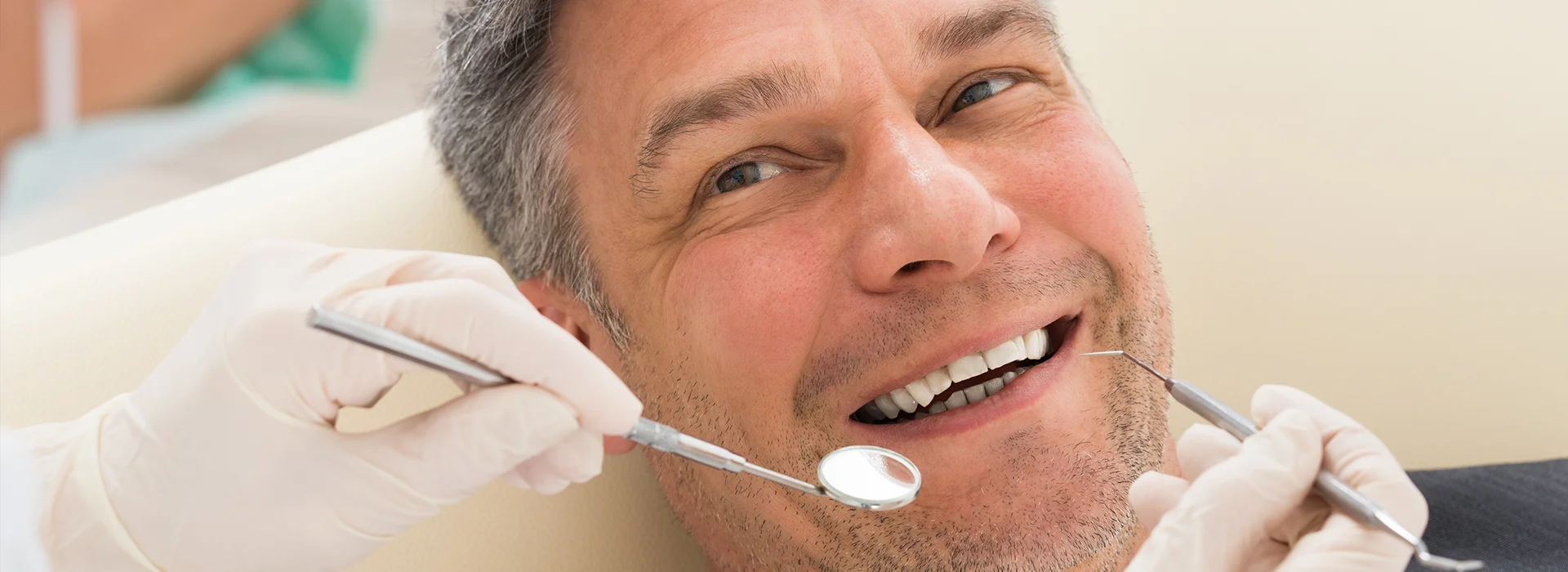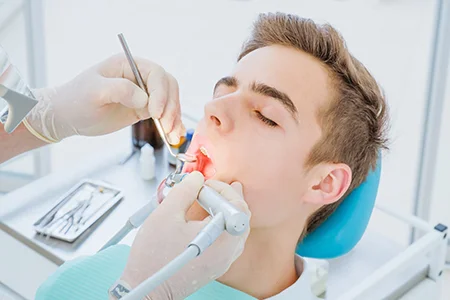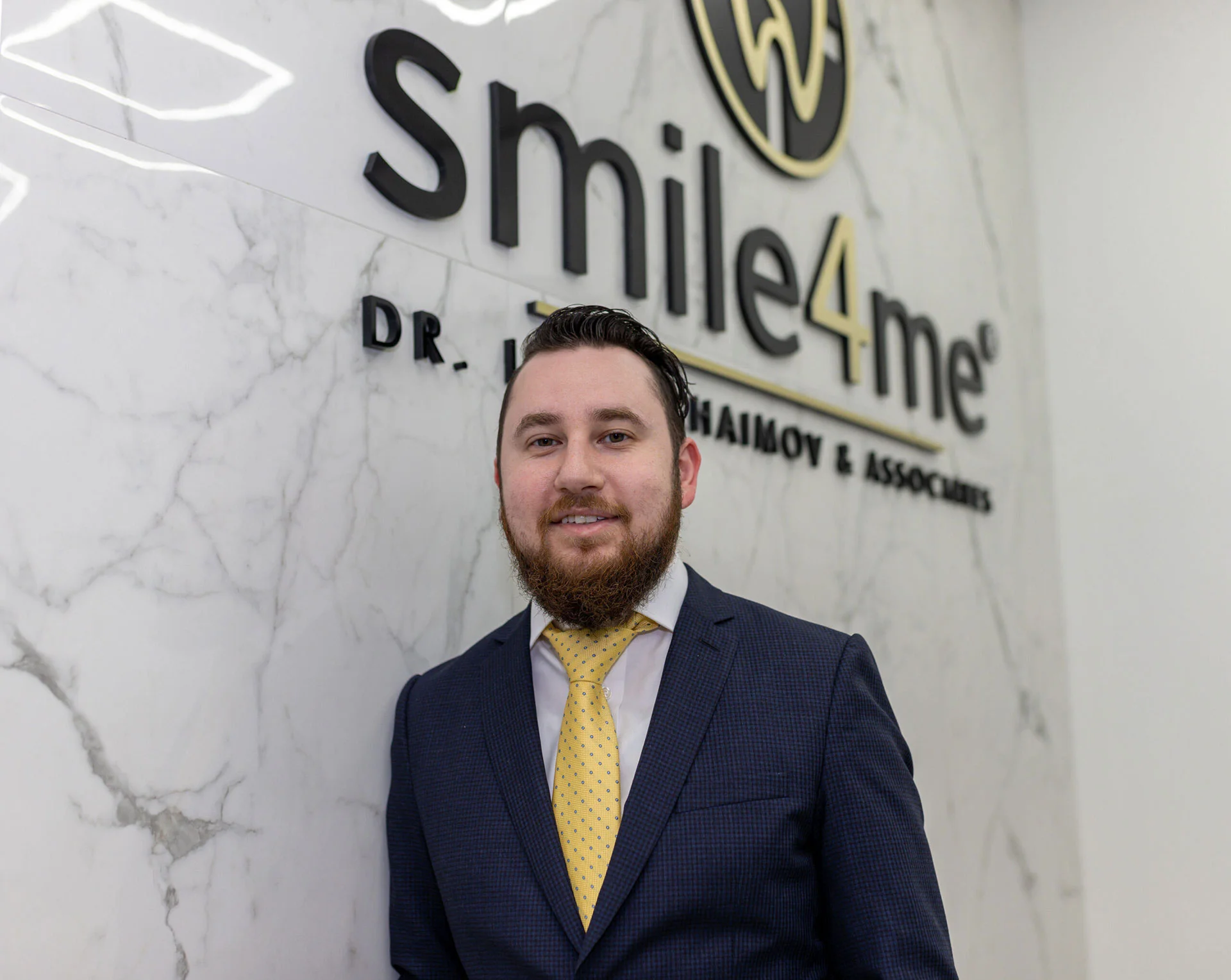Did you know that 42% of American adults 30 years and older have periodontitis? Since periodontitis damages the bone and soft tissues that support teeth, many assume removing all their teeth is the best way to stop the disease. But does full extraction cure gum disease forever?
In this blog, we’ll explore whether permanently removing all your teeth stops gum disease, the risks of full extraction, and alternative treatments that may help restore gum health without losing all your teeth.
Does Full Extraction Cure Gum Disease? Understanding Periodontal Disease
Many believe removing all their teeth is the ultimate solution to stopping gum disease. While extractions may eliminate severely affected teeth, the infection can persist in the gums and jawbone. To fully understand whether pulling all your teeth will stop gum disease for good, let’s first break down what periodontal disease is and how it develops.
What Is Periodontal Disease?
Periodontal disease, or gum disease, is an infection that affects the tissues and bones supporting teeth. It starts with gingivitis, which causes red, swollen gums that may bleed when you brush. Left untreated, gingivitis can progress into periodontitis, leading to gum recession, deep pockets between the teeth and gums, and even bone loss.What Causes Periodontal Disease?
Gum disease is caused by plaque buildup—a sticky film of bacteria that forms on your teeth. Poor oral hygiene, smoking, diabetes, and genetics can increase your risk. The bacteria in plaque irritate the gums, causing inflammation and infection that can eventually lead to tooth loss.Is Full Teeth Extraction Necessary?
While removing teeth can eliminate the most severely affected areas, it does not guarantee that gum disease is completely cured. The bacteria causing the infection live in the gum tissue and jawbone, meaning gum disease can persist even after extraction. Without proper treatment, gums with no teeth can still become inflamed and infected.
The Risks of Full Extraction for Periodontal Disease Treatment
While removing all teeth may seem straightforward to eliminate gum disease, does full extraction cure gum disease completely? Not necessarily. The infection doesn’t just affect the teeth—it also damages the gums and underlying bone. Even with gums no teeth, the effects of periodontal disease can continue, leading to further complications. Before considering full extraction as a solution for gum disease, here's what you need to know.
Bone Loss and Jaw Shrinkage
Once teeth are removed, the jawbone no longer receives the stimulation from chewing, causing it to shrink over time. This bone loss can lead to facial changes, making the cheeks appear sunken. Additionally, significant bone loss can make it challenging to support dentures or implants, meaning patients may require bone grafting procedures before restoration.
Difficulty Adjusting to Dentures or Implants
While dentures replace missing teeth, they do not prevent gum infections. In fact, improper denture care can irritate and inflame gums without teeth, increasing the risk of infection. On the other hand, dental implants require a stable foundation, and severe periodontal disease can compromise the bone structure needed to support them.
Potential for Persistent Gum Infections
Even with all gums no teeth, bacteria can continue to thrive in deep gum pockets left behind by advanced gum disease. The infection can persist without proper oral hygiene and professional care, leading to ongoing gum inflammation and potential health risks.
Restoring Your Smile After Full Extraction
Restoring Your Smile
If a complete extraction is necessary due to severe gum disease, you still have options to restore your smile and maintain oral health. While your natural teeth may be gone, caring for your gums with no teeth is just as essential to prevent infection and ensure a healthy foundation for future dental restorations.
One of the most common solutions is dentures, which are custom-made to replace missing teeth and restore your ability to chew and speak properly. However, will getting dentures stop gum disease? Not necessarily. Dentures require proper cleaning and regular dental checkups to keep no teeth gums free from irritation and infection.
Another option is dental implants, which provide a permanent, natural-looking replacement for missing teeth. However, implants require healthy gums and sufficient bone support, making them ideal for patients who have successfully managed their gum disease.
If significant bone loss has occurred, bone grafting may be necessary to rebuild the jaw and create a strong foundation for implants. Even if you have only gums and no teeth, maintaining good oral hygiene and seeing your dentist regularly can help keep your mouth healthy for years.
Alternative Treatments for Gum Disease Before Full Extraction
Alternatives before Full Extraction
Full extraction of teeth is not always necessary to manage gum disease. Several effective treatments can help control infection, stop further damage, and even restore gum health. Here are some ways to treat gum disease before considering extractions.
Professional Deep Cleaning (Scaling and Root Planing)
A deep dental cleaning, known as scaling and root planing, is a non-surgical treatment that removes plaque and tartar beneath the gums. This process also smooths the root surfaces, making it harder for bacteria to accumulate again.
Antibiotic Therapy
Antibiotic therapy can help reduce infection and inflammation in cases where bacteria are widespread. This treatment is often used alongside deep cleanings to control bacterial growth and promote healing. While antibiotics alone won’t cure periodontitis, they can significantly improve gum health when combined with other treatments.
Gum Surgery (Flap Surgery)
If non-surgical treatments aren’t enough to control advanced gum disease, flap surgery may be required. This procedure involves lifting the gums to remove deep pockets of bacteria and repair damaged tissue. It helps prevent further infection and can improve the chances of saving natural teeth.
How Smile4Me Dental Care Helps Treat Periodontal Disease
At Smile4Me Dental Care, the best way to fight gum disease is through early detection, personalized treatment, and proactive care. Whether you're experiencing the first signs of gingivitis or dealing with advanced periodontitis, our team is here to help you restore and maintain your oral health.
Our Periodontal Treatment Options
At Smile4Me Dental Care, we offer a range of treatments to stop the progression of gum disease and help you keep your natural teeth whenever possible:
Regular Checkups & Professional Cleanings
Scheduling regular dental checkups for early detection is key to preventing gum disease from worsening. We provide thorough same-day cleanings and exams to remove plaque buildup and catch signs of infection before they lead to serious problems.Scaling & Root Planing (Deep Cleaning)
If gum disease has progressed beyond gingivitis, we perform scaling and root planing to remove bacteria and plaque buildup beneath the gums. This procedure helps reduce inflammation, prevent further damage, and create a healthier foundation for your teeth and gums.Advanced Surgical Treatments for Severe Cases
In advanced cases where deep pockets have formed, or bone loss has occurred, we offer gum surgery, pocket reduction procedures, and bone grafting to restore damaged tissue and stabilize teeth.
Conclusion: Does Full Extraction Cure Gum Disease Forever?
Does full extraction cure gum disease forever? Not always. While removing all teeth eliminates severely affected areas, gum disease can persist in the gum tissue and jawbone, even with gums with no teeth. Bacteria can continue to cause infection, making early detection and treatment the best way to prevent servere damage and tooth loss.
At Smile4Me Dental Care, we focus on preserving your natural teeth whenever possible while offering expert periodontal treatments to manage gum disease at any stage. Book an appointment online or walk-in for same-day care and take control of your gum health today!
FAQs About "Does Full Extraction Cure Gum Disease?"
Does full extraction cure gum disease permanently?
No, removing all teeth does not permanently eliminate gum disease. Bacteria can remain in the gums and jawbone, requiring further treatment.
Does gum disease go away after all teeth are removed?
Not always. Even with gums with no teeth, gum infections can still develop, especially if proper oral care isn’t maintained.
Can gum disease go away without removing teeth?
Yes, in the early stages, gum disease can be reversed with professional cleanings, improved oral hygiene, and regular dental visits.
Does periodontal disease go away after extractions, or does it require additional treatment?
Periodontal disease often requires scaling, root planing, antibiotics, or surgery, even after extractions, to fully control the infection.
Does periodontitis go away once teeth are gone, or can it continue to affect oral health?
Periodontitis can still affect no teeth gums, leading to further complications like gum infections and bone loss.
How do I care for my gums with no teeth after extractions?
Regular brushing of the gums, professional cleanings, and an antimicrobial mouth rinse can help keep gums with no teeth healthy.
FAQs About Smile4Me Dental Care
What gum disease treatments does Smile4Me Dental Care offer?
We offer deep cleanings, antibiotic therapy, gum surgery, and advanced regenerative procedures to restore gum health.
Can Smile4Me Dental Care perform full tooth extractions?
Yes, we provide safe and affordable dental extractions if necessary, but we focus on saving teeth whenever possible.
Does Smile4Me Dental Care provide emergency gum disease treatment?
Yes! We offer emergency treatment options for severe gum infections, pain, and loose teeth.
What makes Smile4Me Dental Care different from other dental offices?
We take a personalized, patient-focused approach to treating gum disease, using advanced technology and minimally invasive treatments.
Where is Smile4Me Dental Care located?
We are conveniently located at 31-57 Steinway St, Queens, NY 11103 and we provide top-tier care as dentists in Astoria.
How can I book an appointment at Smile4Me Dental Care?
You can book an appointment by calling us at (718) 400-4400 or visiting us in person for same-day treatment.
